After my first plains game safari in South Africa last year, I was fortunate enough to be offered some contract work that has taken me throughout southern Africa. Since that first trip, I’ve spent about four months on the continent, mostly in short 10 to 14-day chunks. Every time I work there, I tack on some time to hunt. I’m starting to get the hang of it. The first thing to know is . . .
You don’t have to be rich
The biggest fallacy about hunting in southern Africa is that it costs tens of thousands of dollars and is only for the super-wealthy. If you’re going after the the lion, leopard, elephant, rhino, and other “dangerous game,” that’s certainly true no matter what country in Africa you intend to hunt.
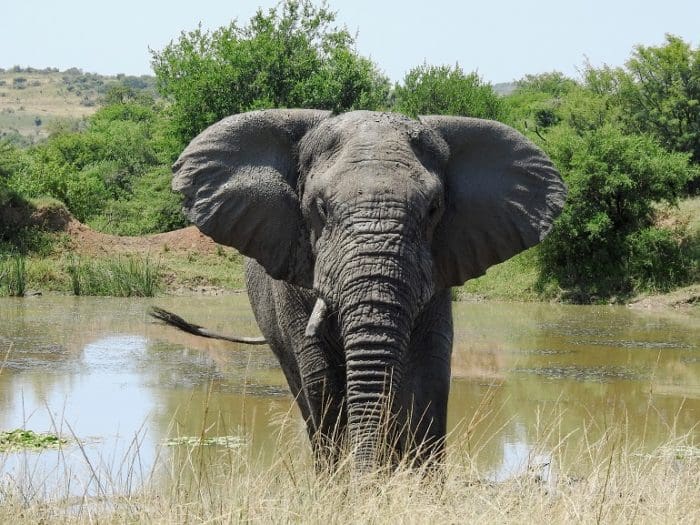
But there’s a whole lot more to hunt in Africa than dangerous game. In fact, there are over 40 species of plains game animals in South Africa alone, and they are far less expensive than most would imagine.
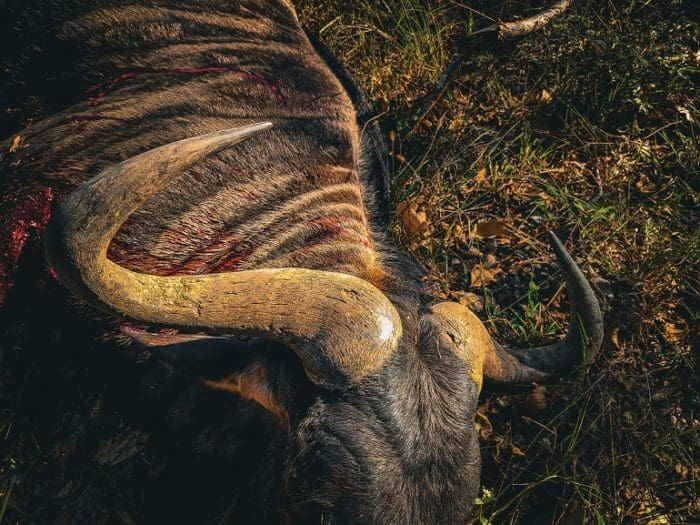
On my first trip to South Africa, I hunted for 10 days and took a wildebeest, a blessbok, a Red Hartebeest and a plains zebra. My total cost, including airfare, lodging, food, tips, permits, everything, was about $5,000. That’s less expensive than most weeklong guided bull elk hunts in the US, and you only get one animal there.
Hunting plains game is an amazing experience. The plentiful Burchell’s Zebra or Blue Wildebeest epitomize southern Africa. Finding an old warthog is more challenging than most would expect, and you’ll cover some incredible terrain looking for that one right boar.
Chasing Kudu through the KwaZulu-Natal or the Eastern Cape is a hunt so enthralling many dedicated hunters choose to go after them over and over again. Springbok in the greater Karoo or the Gemsbok Oryx in Namibia is an entire thing in and of itself.
There are also subsets of plains game that dedicated hunters choose to chase. For me, it’s the “Tiny Ten.” For others, it’s all the “Beests” or all the spiral horns or all of the different color phases of the Springbok.
Given the wide range of species, and the even wider range of environments, you could hunt southern African plains game year after year for the rest of your life and never have the same hunt twice.
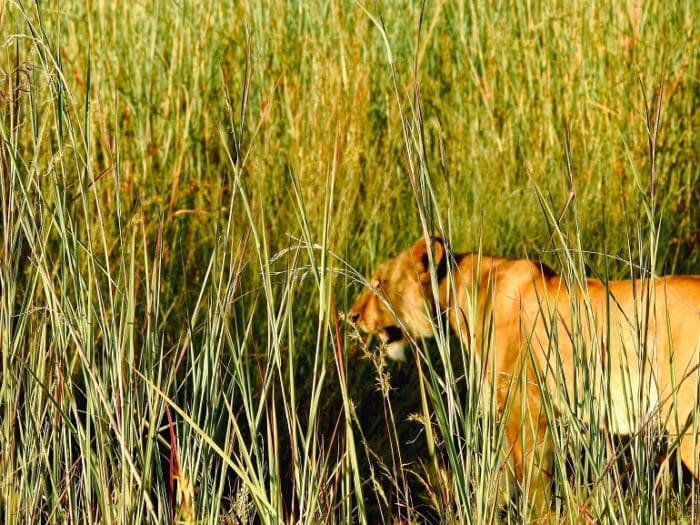
Know what you’re buying
South Africa, Mozambique, Tanzania, Botswana, and all of the southern African countries are very different places, and they hunt a little differently depending on where you are. You’ll see truly massive Cape Buffalo in the South African Limpopo province, but they’ll be in small herds. You’ll see hundreds of them in Mozambique. In one place they’re standing in tall grass, in the next they’ll be in marshland.
If you’re hunting in South Africa, you are almost certain to be hunting what is essentially a high-fenced game ranch. You may never see that fence again after you get in, and the animals living there may live their whole lives and never see it, but it’s there, somewhere.
Conversely, you may be hunting your target species in a smaller 300-acre pen. If this is an important consideration to you, ask your guide service specifically about it.
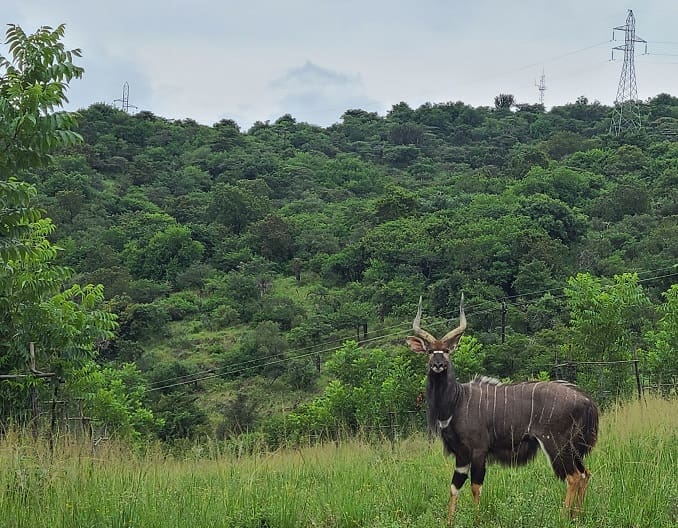
“Free range” hunting is more common in Mozambique and other countries, but the size and quality of the animals may be diminished as compared to game concessions in South Africa.
The only exception to this I’ve found so far is Crusader Safaris out of South Africa. They have real free-range hunts in a few locations throughout the country, a true rarity. I’ve not had a bad guide yet, but the folks at Crusader Safaris are on a different level entirely. I would not hesitate to recommend them to anyone.
Costs
The price of your safari will depend on duration, location, and species. The same animal can be priced radically differently in two different countries.
Most guide services will provide you with a price list for trophy fees for any species killed and the locations they hunt upon request. Make that request early on. Communicate your budget to your guide service and be very clear on your priorities. It’s good to say exactly what you can and can’t afford. Nobody will have any problem with that.
You will also have a “daily rate” that essentially covers your room, food, and sometimes alcohol. Again, that rate varies quite a bit and is generally commensurate with the amount of human misery required to sustain you on your hunt.
South Africa generally has inexpensive daily rates, and a higher trophy fee. Mozambique and Botswana, on the other the other hand, generally have lower trophy fees and higher daily rates.
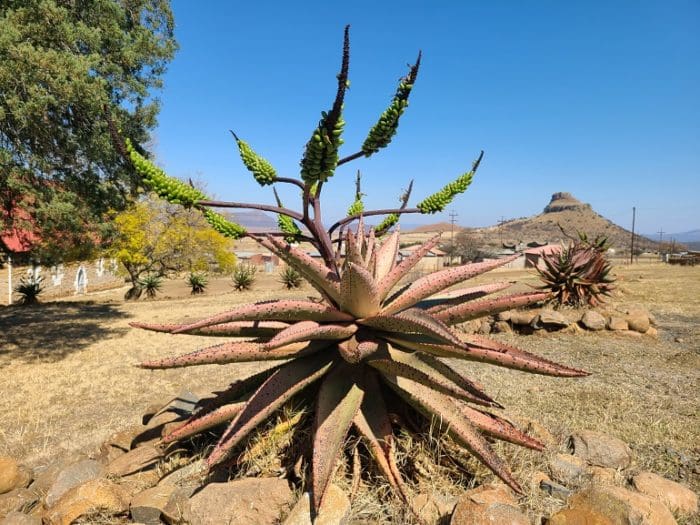
It was strange to me to find that a tent-based safari was often more expensive than lodge stays. I won’t spoil the surprise, but, if you can, do the tent-based safari.
Depending on the geography and plains game species (or primate) you choose, you may need to apply for special permits through your guide service. The fees for those permits are minimal, but some of those permits take days, some even take months. Get right on that.
When you’re there, you will see a lot more game than is on your list. Every guide I’ve used has got me right on my biggest priority on the very first day. Sometimes I’ve gotten that animal on day one…and sometimes I never saw it at all.
While you are hunting for your priorities, other opportunities will present themselves. Your guide will point them out and it’s okay to ask how much it costs. They’ll tell you…that’s part of their job. You might be able to make a deal on that animal, and you might not.
Don’t shoot at any animal your guide doesn’t specifically approve. If you do and there’s blood on the ground, even a single drop, you are paying full price for that animal. If you shoot through a zebra and hit the giraffe behind it, you’ll be expected to pay for both, regardless if either is recovered.
Note that many, if not most, guide services don’t take credit cards. Ask right up front if they do. If they don’t take credit cards, make sure your bank can do an international wire transfer to them prior to leaving for the trip.
Most guide services will ask you for a down payment or “reservation fee” prior to the hunt, and they’ll hold dates for a year, sometimes more. That fee varies depending on location and target species, but expect a fee of at least $1,000 to $3000. This will be applied toward your trophy fees or daily rates.
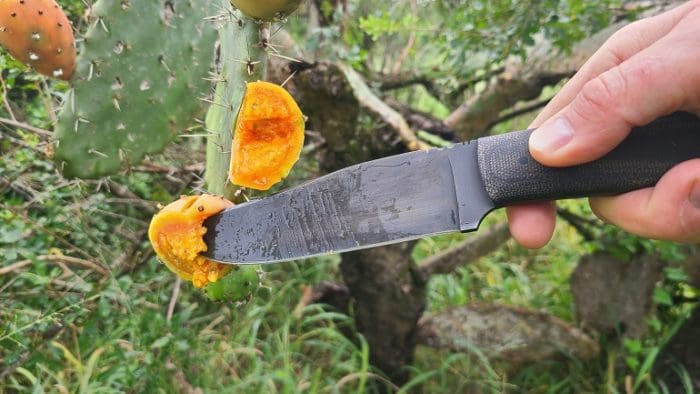
Package rates often provide some savings. But be aware they aren’t set in stone. Let’s say someone offers three spiral horn animals for $5000. You like that, but you want a zebra, too. They list the plains zebra at $1,500, but you’ve only got $6000 total to spend on trophy fees. Call them and see what they can do. I’ve never seen a guide service not drop the price a bit to work in additional animals on hunts.
As for tips, I have given around $100 a day for my individual guide and $150 a day to be split among the kitchen and “house staff,” and $20 per animal to the skinners. This is for good service, and I’ve never had anything but outstanding service. I don’t know if that’s a particularly big tip or not, but the owners of the outfits have always told me it is a welcome amount.
In short, it’s totally doable to have a great safari for much less than you probably think.
Paperwork
Hunting in Africa is more complex than most hunting in the US, but by no means insurmountable. The easiest way to make everything simple(ish) is to hire a reputable guide service.
Nothing is more important than your choice of guide service.
Whether or not to hire a guide service isn’t the question. You have to in order to hunt, or to bring a firearm into the country, for just about anywhere you would hunt. Most countries want an invitation letter from the guide service that details who you are, when and what you will hunt, and usually the firearm and ammunition you intend to bring.
Finding a solid guide service is actually pretty easy. If you can, head to a hunting convention or Safari Club meeting. Talk to all the of guides you can and ask other hunters about them. Use the internet.
There are tons of hunting forums and you can usually find someone who has hunted with whoever you’re interested in. Beyond that, I’ve never found a guide service that won’t happily supply a list of customers with their contact information. Contact those people and ask them every question you can think of.
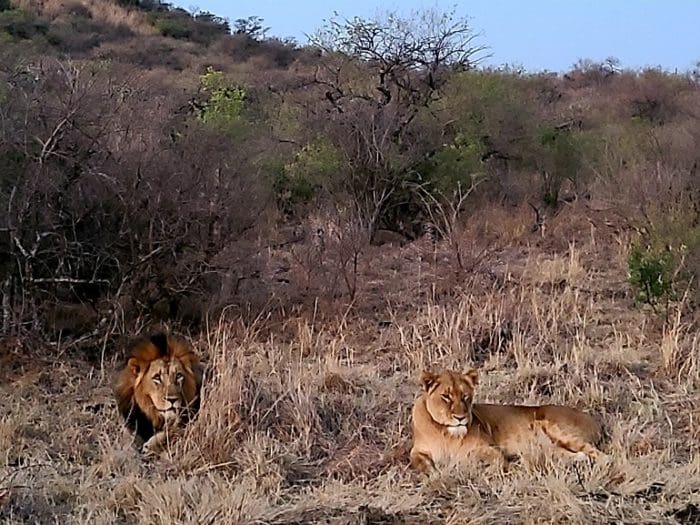
Every country in Africa is different. That means that the laws and permitting for each country may be similar, but they are not the same. You should expect your guide to send you a lot of forms to fill out, especially if you are heading to multiple countries on your trip.
There will be many questions on those forms. Fill them out to the best of your ability, and send it back to the guide as fast as you can. Expect to have to go through that a couple of times if you’ve never done it before. The challenge is not that the forms are particularly difficult, but there are real cultural and language barriers, even in English. Follow the lead of your guide.
In the US, we expect slow service from government officials. That’s because we don’t have any clue what slow service really is. In Africa, they know. Get your forms in as fast as you can. I’ve had permits take four months to approve and I’ve had the same permits take 10 days to approve.
Your airline may bring your firearm directly to the police station inside the airport where you land. Ask at the baggage carousel if this is the case. Either way, you’ll need to find that police station in the airport. You will then have to show your permit to them upon arrival, or you will have to sit there and fill it out.
Don’t fill it out there. If you do, it will be on their time, and the police there are not in a hurry to help. There may also be a significant language barrier and you may be expected to pay a bribe.
Your guide may suggest that you employ the use of a separate party to handle the importation of your firearm. I would strongly encourage this practice.
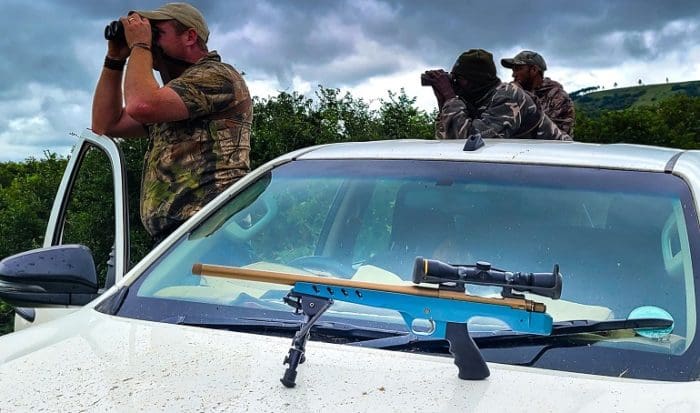
As an example, I had already hunted in South Africa several times before I went to hunt with my Nosler M48. I knew how to fill out the forms correctly and chose not to pay for the import service. That was a serious mistake.
My gun never made it out of the custody of the South African police until I picked it up at the airport on my way home. Just three weeks later I hired https://riflepermits.com to import the same gun. A kind older gentleman met me in the airport, walked me over to the police station, and in less than three minutes I was on my way.
If you are hunting anywhere other than South Africa, this service is even more valuable, as you will often pay more in bribes than you would in hiring the service. A hunting companion of mine paid as much as the value of his firearm to get that gun home from Mozambique. Skip that hassle and hire a pro.
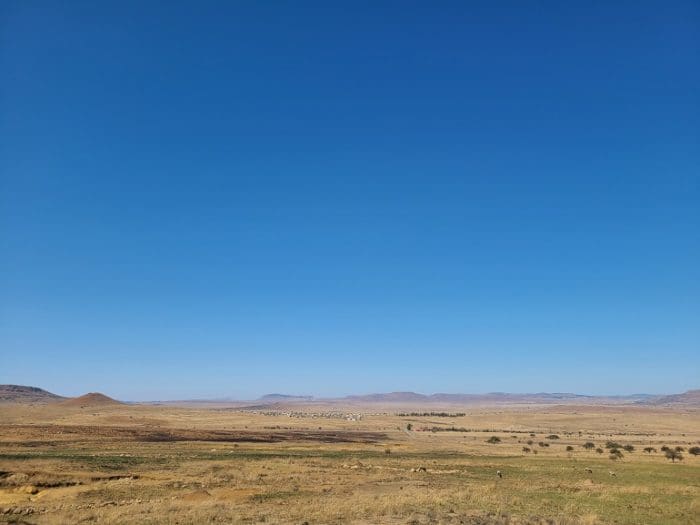
Make sure you have a separate locking container for your ammunition…and only your ammunition. I understand, this makes no sense. But sometimes, and for some airlines, in some countries (and all of this seems to change daily) the ammunition is required to be entirely separate from the firearm, and in its own locked case.
No matter where you go, you’ll need a US Customs Form 4457. It is important now to make sure that any firearms and optics (including binoculars) are on the 4457. There are services in the US available to help you get that form right, but in this case, that’s a waste of money. Call your local customs office (often in a nearby airport) and take your firearms and gear to them. They’ll help you fill it out right there and you’re done. It takes very little time, but arrange for this as soon as possible, as some countries will want to see this prior to granting you an import permit.
Finally, if you have to travel through Europe or the Middle East, you may need to file an import/export permit for whatever country you are stopping in, even if you never touch your firearm while you’re there.
The import/export permit for my transits through Amsterdam took three full months to approve. They required proof that I could legally own a firearm in the US before they would release my rifle, and my Texas CHL was sufficient. All for a rifle I had no access to while I was in the country.
Travel
Early during the COVID-19 pandemic, there were no direct flights from the US to southern Africa. That required me to travel to either Amsterdam or Paris, and then to Johannesburg. Those were long flights, but almost completely empty.
Now that the world has regained a modicum of sanity (brief as I’m sure it will be), there are once again direct flights from Atlanta to Johannesburg. This is the way to go. I have yet to take this flight, in either direction, when it was devoid of other hunters. You can get a lot of help at the airport from them and lying about your hunts to each other makes the trip go faster.
Flying inside the continent, or even inside different countries in Africa, can be a lot trickier. Ask your guide to purchase your tickets for you. Make sure that you are allowed to transport your firearm as many airlines do not allow this. That said, even if you do everything right, there can still be issues.
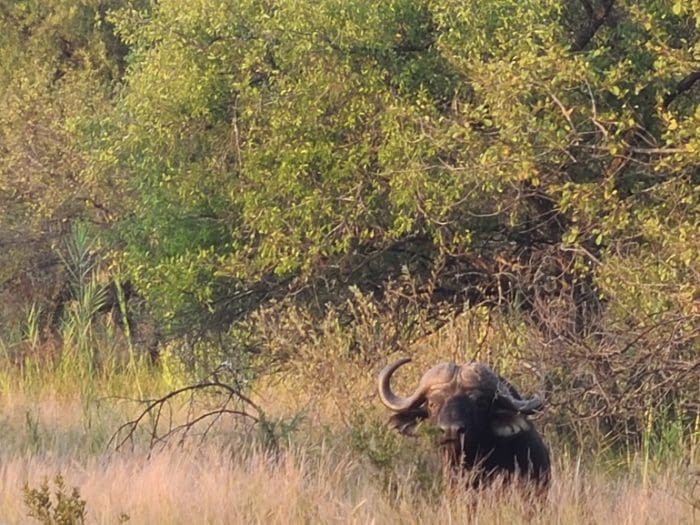
For instance, I recently flew from Pietermaritzburg to Johannesburg, only to find that my beloved Ruger No. 1 didn’t make it to the baggage carousel. It turned out that the airline I was flying changed ownership that day, and some baggage handlers walked off the job, leaving my rifle on the plane, which flew back to Pietermaritzburg.
I called my guide, who drove to the Pietermaritzburg airport where he found my rifle still on the plane, waiting there on the tarmac. He put it on the next flight to JoBerg and I picked it up personally on the tarmac (for a modest fee) when it landed. This kind of thing is far more common than you would hope, and the moral of the story is…again, still…get a good guide.
Everywhere I’ve gone on the continent I’ve hired a driver, whether I’m hunting or not. Part of this is because I get lost easily and part of it is that whole left side of the road thing is terrifying. And so are the drivers throughout southern Africa. There are no rules of the road there, only suggestions.
Getting your trophies home
If you already have a US-based taxidermist you want to use, contact them before your trip. They will provide you with a form to give to your guide service. You’ll pay for a “dip and pack” service in Africa for your hides and horns, which will be sent through a customs broker to a tannery and then to your taxidermist back home. The broker I use is Cindi Rulon at Pro Cargo USA and I cannot possibly recommend her more.
Alternatively, you can have your trophies mounted there. If you get to inspect the work of the taxidermist while you are there (usually in the lodge of your guide service) and you find them acceptable, there’s no reason to expect you’ll get a poor-quality mount. I’ve done it both ways now and I’ve gotten great results every time.
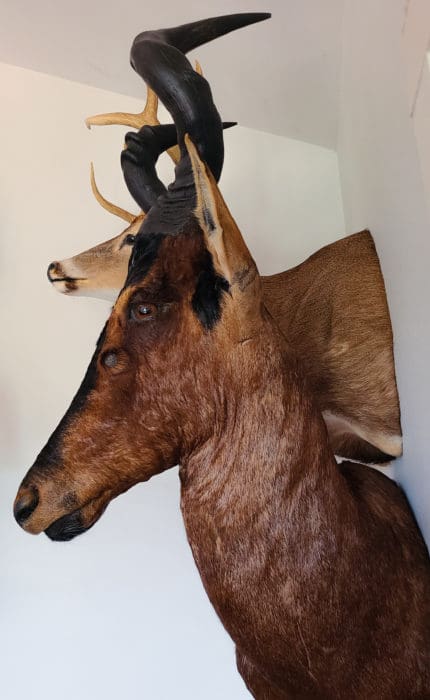
That said, the cost of shipping trophies back home can be…extreme. For instance, I had one pedestal mount and four hides and European mounts shipped home. The total cost of shipping was just over $3,000 including the various customs and wildlife department/agriculture department fees in each country.
As before, don’t expect your taxidermist in Africa to take credit cards.
I’ve learned that if I just want hides for rugs and European mounts, I have them done in Africa. My shoulder or full mounts are usually done here in the US. (I use either Conroe Taxidermy or Animal Art Taxidermy of Austin.) Expect “dip and pack” service to run around $200 per animal. Crating and documentation fees depend on the size and number of animals, but expect an absolute minimum of $500.
Bows, Handguns, and Front Stuffers
Unlike in the US, muzzleloaders are treated just like any other rifle throughout southern Africa. Getting the powder and primers over can be a much bigger challenge than the actual firearm. Ask your guide service if they can source them locally, and if not, ask them for suggestions on how to get those items over there. Be advised, there may be no legal way to do this.
Bow hunting safaris are well established now. I took my stick and string over and had a ball. With a bow, spot and stalk is less common than blind hunting, and hunting from a built-up pit blind near a watering hole can be extremely effective. It’s also a great way to see lots of game, especially at night.
There are specific regulations in some countries for arrow weight and speed depending on species. Your guide service will advise you there.
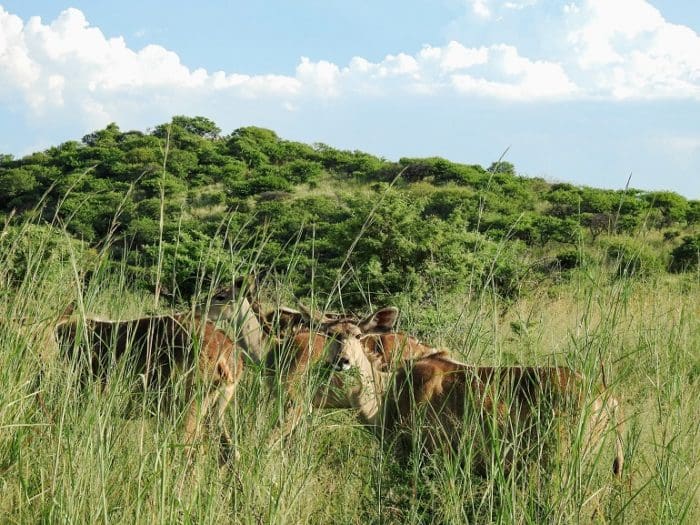
Handgun hunting still raises eyebrows, even in South Africa. Self-defense or “military style” handguns can’t be brought into most countries you would hunt in, and semi-autos are right out. Single shot, bolt action, and revolvers can be brought in, as long as they have a scope attached. A factory Ruger Bisley Hunter is verboten. Attach a magnified optic to it and it’s just fine. I have no idea why.
As with animals everywhere, recovering game shot with an arrow or a pistol round can be a challenge. Before you go, ask what the process and fee is for hiring dogs (or in some cases a helicopter) to find wounded game.
I was ready to pay for dogs to find an impala. My guide and I both agreed the shot was good, but the dude just vanished. There was no blood on the ground, other than on the arrow that had passed clean through.
The trackers were stumped. I had to leave that day and time was running out. I was ready to pay a hefty sum for tracking dogs, when the guide kindly told me no, he’d find it that day or the following, dip and pack it, and send it to me. It was laying in the road on the way back to camp, not far away, but in the opposite direction we’d seen it run.
Is it safe?
Kinda. Depends. And no.
Even the safest countries in southern Africa aren’t generally as safe for visitors as most places in the US. Johannesburg is a big modern city, and I wouldn’t bring my family out there after dark. In fact, other than Cape Town, I can’t think of any of the big cities throughout southern Africa I’d feel really good about wandering alone after sunset.
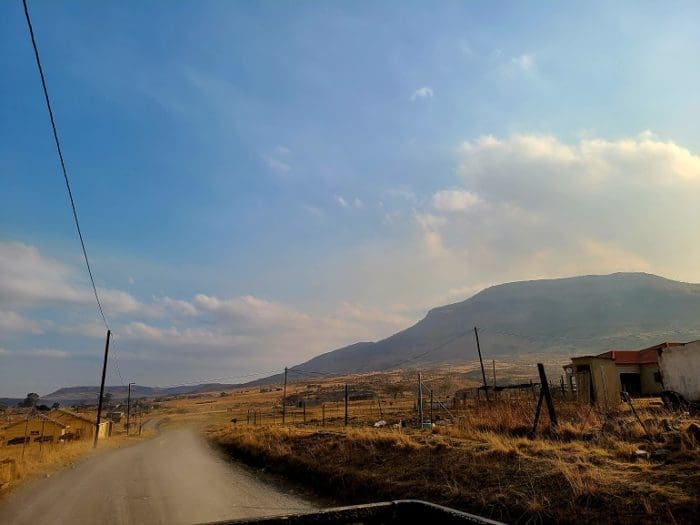
The countryside is generally safer, as there are fewer humans, although you should understand that infrastructure just isn’t available in many rural locations. Roads are often washed out, electrical power is often intermittent, health care is rarely good, and law enforcement is simply unavailable.
On one of my trips, I was attacked by a rabid bat. It took me three days to get to a hospital that had a rabies vaccination available and then I had to pay the doctor $600 cash for it. The “nurse” didn’t know rabies was fatal.
Bribery is also commonplace throughout every country I’ve visited on the continent. Police are the worst, but government workers, ticket agents, really just about anyone in any kind of position of authority will expect a bribe. Accept that it’s just the price of doing business and interact with them as little as possible. Let your guide do the talking.
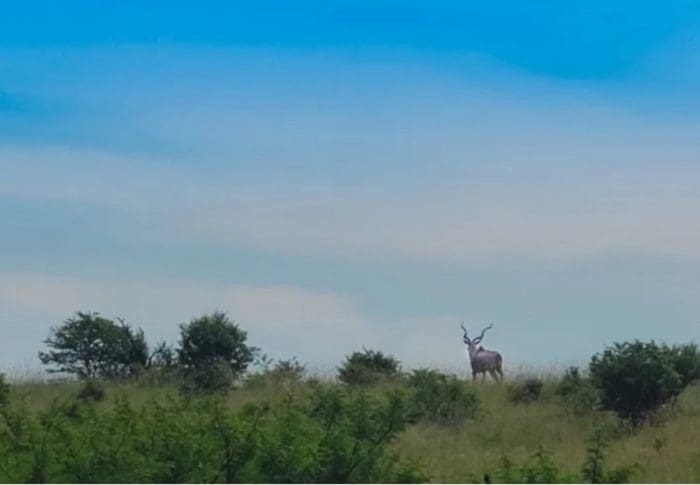
There’s only one way to find out
Everyone who hunts in Africa, me included, falls in love with it. You’ll be planning your next hunt before you leave the first one. There’s a beauty in the wildness of that land that we’ve done our best to stamp out here in the west. You find you miss it, that beauty, that wildness. Save your pennies and spend your time. Africa is worth it.

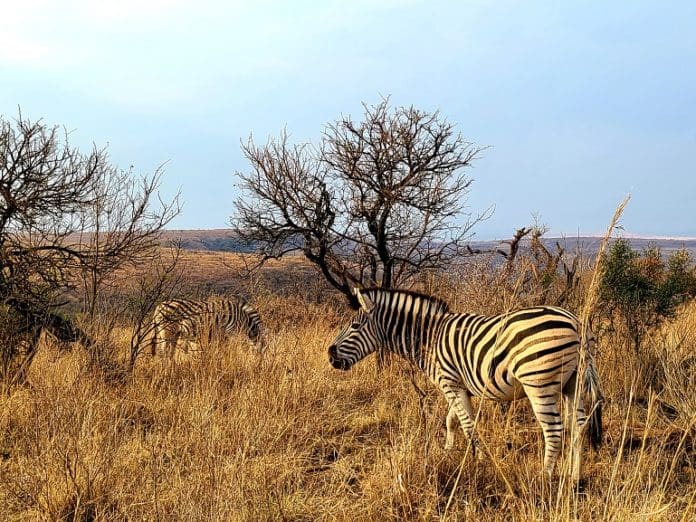



“It was strange to me to find that a tent-based safari was often more expensive than lodge stays.”
I suspect the reason a tent cost more than a room was that there’s labor in setting up and breaking down the tents, and the price reflects that.
Now for a touch of snark –
“Finding an old warthog is more challenging than most would expect, and you’ll cover some incredible terrain looking for that one right boar.”
I dunno, you can find plenty around here after 10pm in the local bars ’round here… 🙂
Never been to Africa. But my daughter went to Argentina for several years for her company. Bribery was just accepted as normal. For everything.
Argentina has fairly strict gun control. And they have a fairly high crime rate. A non citizen cannot own or carry a gun. But with the right amount of money to the right person he can “rent” a sidearm, ammo and accessories.
Just saying. Still another reason I no longer travel outside my country.
An old guy I used to know who travelled to and from Mexico on a fairly regular basis, said essentially the same thing re: bribes. Said the fastest way to get through customs on the Mexican side of the river was to put a newish issue of Maxim in the trunk with a $20 bill in the centerfold. The customs guy would “confiscate” it and send you on your way.
Uh yep.
Sounds like a real nice deal.
I actually feel sorry for the Far Right that are so frightened of life they cannot go out the door to their mailbox without an assault rifle, two handguns and half a dozen commando daggers. It’s really no way to live.
The last time I went to Europe I had work colleagues tell me that they were to frightened to ever go outside the country and no amount of my hands on experience could convince them otherwise. In reality many countries in Europe and Asia are far safer to travel in than in the U.S.A. In the 60’s I was in Tibet and again felt far safer than I would ever feel in the U.S. especially the big cities. Japan was safer than having a pick nick in my own back yard.
As Mark Twain once said: “Travel is fatal to prejudice, bigotry, and narrow-mindedness, and many of our people need it sorely on these accounts. Broad, wholesome, charitable views of men and things cannot be acquired by vegetating in one little corner of the earth all one’s lifetime.”
Yes Mark Twain certainly got around. Despite my knowledge of world history I was shocked when I was in Bucharest and stumbled upon a bust outside an outdoor museum. Curious as to who this man might be I walked up and read the inscription and almost fainted dead away. It was a bust of Mark Twain to which the museum was dedicated and in Bucharest there is a Mark Twain University. Years later I still have not been able to find out much about how this University and Museum came to be or why. I did find out Mark Twain spent over a month there when on his world wide tour and speaking engagements. He obviously made one hell of an impression on the Romanians. If I would have had more time that day I would have visited the History Department there and found out more.
“If you have not traveled the world, you have not lived” Dacian 2022.
I might add that when you visit a foreign country in peacetime to meet the people (not murder them in war) you get to know them as human beings much like yourself.
Liar, liar, pants on fire. You were doxxed. We’ve been to your facebook. You were not born yet in the 60’s.
You are a mentally ill pathological liar and an anti human rights and civil rights fascist.
Wrong Jethro you Moron I was born in 1948 and received my degree in 1972.
Jethro your pea sized brain needs detoxed.
No. You weren’t, jerry p. of canton ohio.
And speaking of degrees. What’s yours in? Delusional BS?
JWM mind sharing some additional data? How was he dozed, who did it and what did we learn? I’m genuinely curious to learn more about the medical oddity that calls himself dacian.
De Facto. As you can tell from his remarks herr dacian ain’t to well educated. Somebody more tech savvy than me followed the clues and found him. I can’t ever say his full name again under threat of banning.
But we’ve been to his facebook. He’s a young man. No mention of any degrees and an almost sexual and religious fascination with greta the climate change bimbo when she was still underage.
He truly is mentally ill. Which makes him dangerous.
Duncian, you should meet my sister. Really. I don’t know why I never thought of it before! She has several degrees from a few universities. The last one had her tagging turtles off the Baja peninsula. (That one cost me a Surefire flashlight to the Pacific, and I explained/and demonstrated to her how a lanyard works) Then she’s off to Thailand to sleep on a grass mat in a Buddhist monestary for a month. To count tree frogs in a rain forest. After that she went down under for another month to live on a boat and dive on the Barrier Reef and measure coral. I admit, that one made me a bit jealous. Especially since she borrowed my dive gear to get certified before she went. Anyway, you two should get together. She, too, believes that Global Warming is the new, great, fourth religion. She too believes that if firearms would go away, the bad guys would go away with them. She too believes that she shouldn’t have to pay back her student debts to those she owes for those vacations. Because, that’s what they were. And those weren’t all. Did I tell you about when she was in SD digging up a T-Rex? Duncian, you may ask, “What about career advacement?” Glad you did. She teaches elementary school. And complains about how much she has to work. She has the entire summer off, a week at Thanksgiving, two weeks at Christmas/New Year. A week at Spring Break. And every other holiday and personal days she gets. Welcome to socialism.
I’ve been to South Africa twice. The author is spot on with all of his observations. I had very similar experiences except having to pay for tracking dogs(the guide had his own) and the bat bite issue. I will probably go again, the land is absolutely breathtaking
Two friends are going to Namibia at the end of July. They’ve asked me to go. Plains game hunt. I have the rifles. I have the money. Mark even offered to pay my travel expenses. No. I’ve left the United States. Most times at government expense. In third world countries. I didn’t enjoy it. As much as I would love to hunt Africa. No. However, if the guide will give me a FAL or a G-3 and a P-35 when I get to camp, I’m in.
Forgot to say. Great article. Please allow me to hunt vicariously.
To Flag Waver
And by the way if you are as rich as you claim in regards to dropping thousands of dollars at the drop of a hat send me the check, I am older than you are and willing to take your place.
JWT, said $5000. Mark and Charles quoted me a bit more than that, but still well under $10,000. That’s not wealth. I’m only a retired deputy sheriff, but even I can go to the bank tomorrow and withdraw that from savings. It really doesn’t matter if you don’t make a lot of money. As long as you don’t piss it away and, this is important, so pay attention, you don’t have any debt.
to Flag Waver,
You are constantly bluffing and bragging how bad ass you are when the other person is unarmed but in a fair fight when the other side is armed you run and hide just as the Uvalde coward cops did.. You just admitted you have no balls to go to Africa and why. You must not have much faith in your riflemanship. When in the 80’s I competed with M1A’s in NRA across the course fire I often beat them with a bolt action in the timed rapid fire event. Of course you have to know how to quickly manipulate a stripper clip on a fast and less than a second reload.
Of course you did, buttercup. We believe you.
Duncian, you really are a sad little…man? I’d love to travel the planet. And not just to hunt. It’s just that I have to insist that it be on my terms. That means armed. As for afraid? Not really. “Scared shitless” is the phrase I think you’re looking for. Guilty as charged. More than once. No one ever accused me of being a coward though. But then, I’ve given you my PX #. More than once. Others in the TTAG family have reached out. You. No bueno. Now. Who’s really afraid?
I will not be bated and I have dealt with nut cases like you before.
By chickening out going to Africa you proved you were of the same breed of cop as the Uvalde cops. That by the way equals coward.
And I find it interesting that your sister turned out to be the opposite of you i.e. a humane and decent person, people who are products of higher education usually do turn out that way. I wonder how you got so screwed up but again your lack of higher education certainly was a factor.
Duncian, I almost forgot. Do you want my sister’s number, or not? She used to be beautiful. Cheerleader, Home Coming Court. No kidding. Not so much now. Then again, you chose a balloon head, cartoon character with one tooth to… Well, I guess it doesn’t matter. You’re too afraid to call me. I bet the idea of talking to a woman, even your mother, scares the shit out of you. Especially, talking veto your mother.
Getting an FAL from your guide is certainly not out of the question
Really! Now if the PH will hand me an L1A1, and a bit of kit, when I get to camp I’m in.
Still, a handgun between the airport and camp would be nice too. I gave Mark a Randall Tri-Athlete as a bon voyage gift. It’s easily hidden and will spill a man’s intestines on top of his boots post haste. They wouldn’t let him bring a pistol.
GF,
Your guide will often have a registered sidearm and as soon as you walk out of the airport, you’ll have your rifle. There are few problems that can’t be solved with 300 grains of lead moving at twice the speed of sound.
JWT,
About da*m time you continued your African trip series. I find them and your style of writing entertaining to read. Don’t see myself ever going on an African hunt, but I can enjoy reading your adventures.
I’ll have to settle for prairie dog, gopher and Colombian ground squirrel “hunts”.
Would like to see you review more mid-level optics…binocs, spotting scopes and rifle scopes.
I’ve been working too much and hunting just enough that I really haven’t had much time to write. As it is just about all the writing I’ve done has been on airplanes or while getting over jet lag.
I’ll make it a point to ask Dan for some more budget optics.
I’ve read through the opening comment and most of the others. I still cannot see the point of ‘hunting’ semi-domesticated aniomals and they are semi-domesticated because they ALL have to have outside support when penned in and not free to roam within their widesprerad NATURAL RANGE. IT may srurprise the ‘hunters’ to know thaqt most ‘wild animals’ including Cape Buffalo. Elephants ALL antelopes and Rhinos when enclosed in this way all rapidly become used to people especuially RHINO which is actually one of the easist animals to domesticate as any zookeeper will tell you. Then then become easy targets require absolutely no resemblence of hunting at all. True hunting require tracking skills and not fancy firearms I do not understand why it is even nessessary to take your own fireams when most ‘hunting lodges have more than adequate one to hire out You do not find the ‘pros’ watching your back out there using the fancy stuff because both YOUR and THEIR lives may depend on FORM over FASHION.
I still do not understand why people find it nessessary to travel the world shooting animals even though I understand that the industry DOES bring in an awful lot of dollars for the local economy and dollars demand results in the form of a stuffed head ot two . I find it ever so faintly rather childish and, if you cared to investigate, so do the pros conducting the business!!
sure thing bert. if you wanna pet a rhino just build a fence around it. skritch, skritch.
how would you understand the desire to travel with your own longguns? you don’t have any.
Prince Albert, you still suffer the english illusion that hunting is a royal sport and, it seems the english commoners still despise it. I sympathize. The peasants were starving under Royal rule. Yet, it was a hanging offense to “poach the king’s deer”. Still, king george, not withstanding, citizens of the United States can hunt. As an aside, I’ve never had the opportunity to visit Great Britain. I’d like to. My ancestors are from there. My sister, mother and many other relatives have. They said you guys do okay with fish. Just okay. They said you guys can’t prepare red meat if your name was “red meat”. No wonder you don’t like hunting. If I couldn’t cook meat I’d be a gardner too. Happily, I know how to do both. Oh, I seldom buy fish either.
i hear the spotted dick is spot on.
rashers. fries are chips and chips are crisps.
pudding. redeeming facet: young’s winter warmer.
great stuff, mr. taylor.
too many questions. i’ll just ask, who forged that micarta handled blade, and what is the telephoto limit on the lens? assuming you were not 25yds from ol’ snorty there.
and is that a fruit or a flytrap?
Yeah. What about that knife? The flora looks a bit more S TX the SA though.
That knife is my constant companion, the Winkler field knife. Dan is a personal friend, a childhood hero, and was kind enough to show me how forge the right way. That knife is all you’ll ever need.
GF, that’s why I took a picture of it! I was shocked to find prickly pear in the kwazulu-natal. Absolutely delicious.
Pics were taken with my camera phone.
That particular elephant was pissed off, and probably not 40 yards away. He had been in a fight the night before and got his tusks shattered. He was roaming around destroying everything. I was amazed at the strength and devastation. He was walking up to fairly sizable trees and just bashing them down.
He approached me and all I could do at that point was stand still. He trumpeted and flapped and stomped but eventually walked back off into some mud.
“He had been in a fight the night before and got his tusks shattered. He was roaming around destroying everything. I was amazed at the strength and devastation. He was walking up to fairly sizable trees and just bashing them down.
He approached me and all I could do at that point was stand still. He trumpeted and flapped and stomped but eventually walked back off into some mud.”
That’s wasn’t mud. It was squishy remains of what pissed it off the night before.
😜
I’m going to have to research that blade. A prickly pear in Africa. Who’d a thunk. They caused my bare feet a bit of torment in my youth. Those and stinging nettles.
i just discarded some broken glass onto the trax sunday. jammed my hand into a nettles plant in the process, it is still swollen and burning. a very beautiful plant that deserves respect.
winkler:
https://www.knifemagazine.com/winkler-knives-extended-free-preview/
One last thought on knives. If I were going to SA, I’d have take one of my Chris Reeves.
i’m thinkin’ he started in sa before moving to idaho. i’d bring mine just because “insingo.”
Cue Toto
In South Africa, the South African Social Security Agency (SASSA) plays a crucial role in providing social assistance to eligible individuals and families. From grants for the elderly and disabled to child support grants, SASSA offers various forms of aid to those in need.
The recognition of SA for me is just Sassa status portal 😉
I think the SASSA status check tool is best for checking SASSA status and SASSA news.